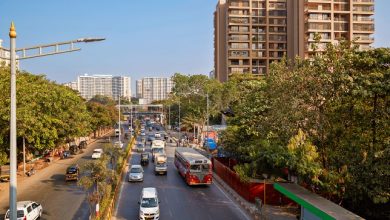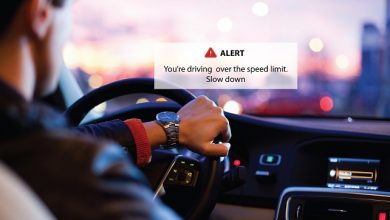Opinion: Rajasthan Government makes Vehicle Tracking mandatory for Ambulances- Are TSPs & Users Ready?

The Rajasthan government issued an order making it mandatory for all ambulances to have a vehicle tracking system or GPS device installed. According to the officials, this is the first such order issued in the country that mandates for an ambulance, older than three years, to have a GPS tracker installed. This will help to curb cases of overcharging, ambulance operators taking longer routes, ill-treatment of patients and criminal activities, the state transport department said.
How much is it beneficial for telematics service providers? Will it increase their sales? What is the implementation process? To know the answers to these questions, Telematics Wire took reviews from some of the service providers.
Shyam Sundar Sharma, Director, Sarthi Systems, Jaipur said the policy has a good impact on TSPs. It will increase sales. People were using this technology earlier, but now the demand for vehicle tracking devices for ambulances is increasing.
However, there are still some flaws in that policy. Rajiv Sharma, Director, K S Technosoft Pvt Ltd (Tracking Genie), Jaipur said that this is a good move as during the COVID crisis there was no control on the movement and charges of the emergency vehicle. But before implementing the policy the authorities should have ensured that all the parameters related to the policy were clearly laid down and explained to all stakeholders.
One-month time to implement this policy was very short due to the non-availability of AIS 140 devices at short notice. AIS 140 devices are expensive and are not available off the shelf. They are generally manufactured on an order basis and there are other requirements like validity of COP of the device etc. The implementation of the policy was kicked started without even getting all its parameters, SOP’s ready and explained to the stakeholders. The ambulance drivers / the owners were not made aware of the complexities of the system. They did not get to know the benefits of the new system. Most of the stakeholders got the new devices installed as they were informed that their permits will not be issued or renewed if they do not have this system installed in their ambulances. Proper training was not provided to the stakeholders as to how the new system works, where the data will be available to see, will they have facility to track their vehicle/asset on a real-time basis if required, and more.
Sumit Garg, Business Head, Esszie Telematics, Jaipur said, “The service of GPS devices is not upto the mark. The devices approved by the government are totally useless. They have service issues. The components of these devices don’t work. If you compare normal devices and government-approved devices, they have huge differences. Normal devices are cheap and work much better than AIS 140 certified devices and other government-approved devices. The reason being that Indian technology is still not that good. The Indian companies have to spend a big amount to get their devices approved by the government. It impacts the actual product and subsequently, companies start using cheap components to make the devices in order to recover their money. Location accuracy of government approved devices is very poor. Cheap and Chinese devices have much better accuracy and their service part is also good.”
On the sales part, he said that the government-approved devices are very costly and they have less margin on these devices. Their service is also not good. Without these devices, RTOs don’t provide fitness certificates for the vehicles and that is why it becomes a compulsion for the users. The government-approved devices don’t give location accuracy and their server is also not ready yet. As a result, the impact on sales is negligible.
Navneet Choudhary, Founder & CEO, LAMROD GPS, Jodhpur said, “I think this is a great step taken by the Rajasthan government, recently people have faced so many issues especially in COVID second wave in terms of unreasonable fare charges by few ambulance owners. Using this technology, the government would be able to take control of this issue and would give more power to hospital management to manage their ambulances and for a better-centralized system. The general public is getting aware of the benefits of GPS systems by government cognizance and media coverage. We are getting more queries and enquiries about AIS140 certified devices and its benefits for general purpose use as most of the people are interested in other portable GPS Trackers to ensure their children’s safety.”
Further on the sales part, he added that they are getting unprecedented exposure as most of the ambulances and other vehicles was using non-AIS 140 certified devices and now they have to comply with the AIS140 certified devices so market opportunities seem bright. Apart from owners of the ambulances, the general public is now interested in portable devices to assure the safety of their vehicle, advanced features like Engine Lock and Anti-Theft are getting more attention.
In April, the Rajasthan government had formulated guidelines to regulate the fees charged by ambulance operators during the second wave of the pandemic. As per this, for the first 10 kilometers, Rs 500 is to be charged. After that, operators can charge twice the fare calculated at the rate of Rs 12.5-15 per km based on the size of the ambulance. An extra Rs350 can be charged for transporting a Covid patient or body and for the required PPE kit and sanitization.
On the basis of the reviews, we have found that it is a good thing to have such policies for better monitoring and management of emergency medical transport services. We are ready to implement these policies considering the government’s focus to ensure the safety of people on roads. However, the technology is still at its nascent stage in India and it requires adequate infrastructure along with proper training for quicker and effective implementation.




